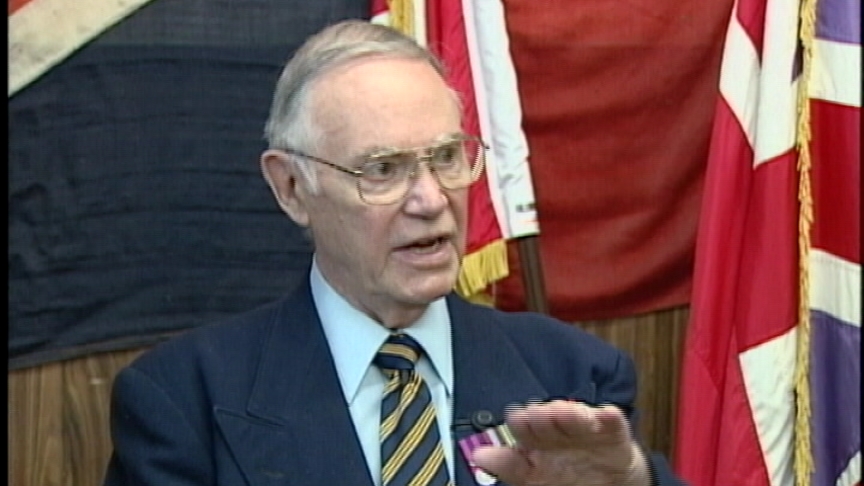Hong Kong Falls
Heroes Remember
Hong Kong Falls
Well then came the surrender, the orders to surrender. But
then, once again, it was interesting that the, that was, or
Christmas Day was the official surrender, but at Stanley
Peninsula, the commander would not agree to surrender on
Christmas Day. So, he didn't surrender until the following day,
Boxing Day. And in that time, of course, there was a lot of, of
shelling and carrying on.
Interviewer: There were more casualties taken?
Yes.
Interviewer:The next day, Boxing Day, 1941, Stanley Peninsula
surrendered?
Yes.
Interviewer: What do you recall about the surrender itself?
Surrender? Well, I recall being, everyone had to, we had to
stock pile all our arms in one particular place in a field and
wait for orders from the Japanese, and the first orders came,
I think it was either the 27th or the 28th , when we all had to
get in and march all the way back to North Point Camp in
Hong Kong.
Interviewer: During the period when the Japanese Army were
taking possession of you as POWs and marching you back to
North Point, what was your impression of those Japanese soldiers?
Well, it wasn't a very good impression, I can tell you, because
some, some of the, some of our people couldn't march too well and
they were treated rather badly, and we weren't permitted to rest
at all. We were marched all the way back and frankly I forget
exactly how many miles or kilometres it might have been, but
it was quite a long distance, quite a long march all the way back
to, to North Point. And along the way, of course, we saw victims
dead. And it wasn't a very pleasant trip.
Interviewer: Were these the men that were wounded and couldn't
keep up, that they were made victims?
Again, as I recall, some of them were. But most of them had
obviously been killed during battle and they were on the side of
the roads.
Related Videos
- Date modified:




